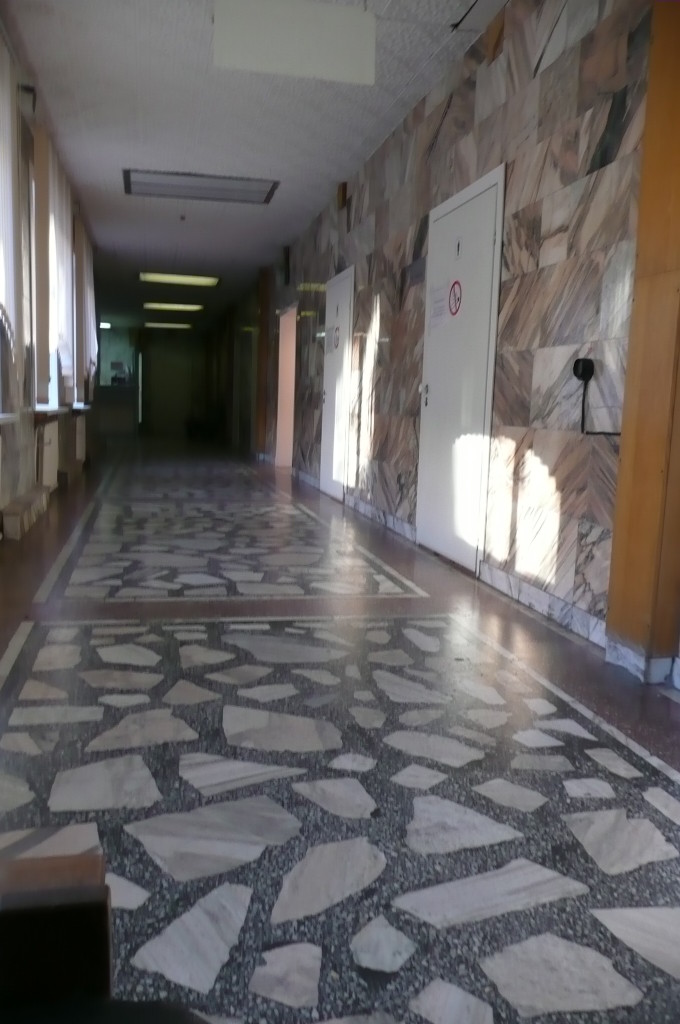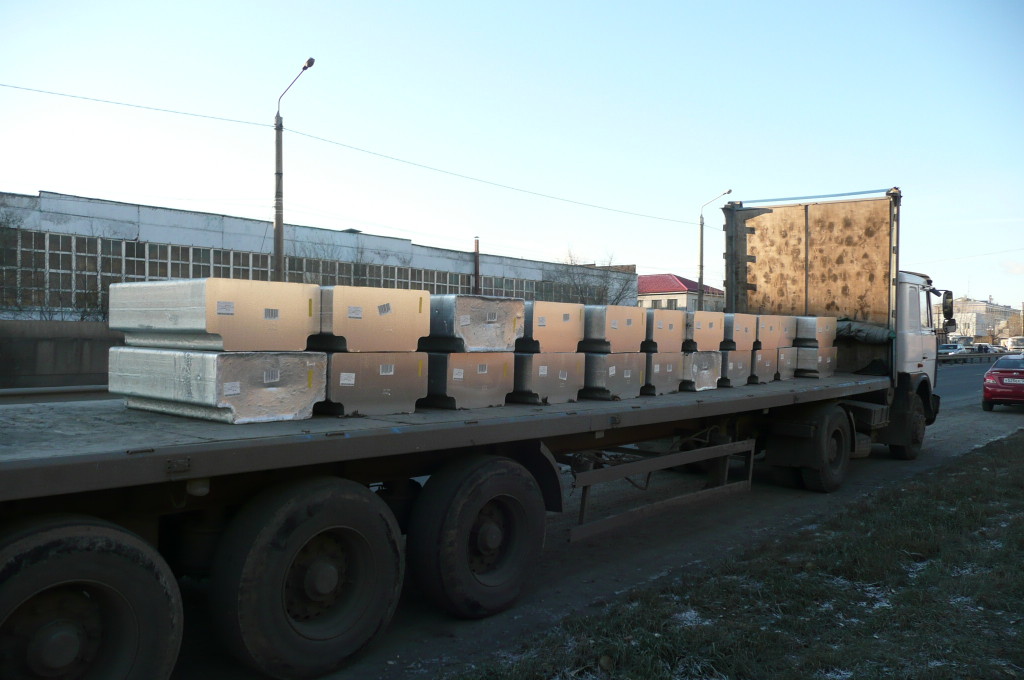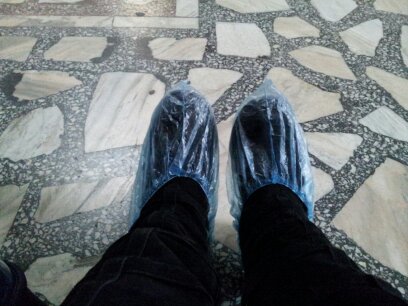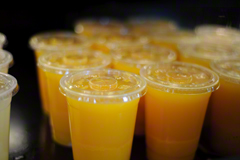Going to the doctor’s
Some people are afraid of going to the doctor’s. All those scary white coats and round shiny disks on their foreheads of Hollywood fame, not to mention metal instruments that look like they’d be more at home in a torture chamber. I’d be scared too.
But my experience of the medical system has really been quite different to that. For the most part I have dealt with medical professionals who have treated me as an adult of equal intelligence and respected my personal space and need for privacy. With some medical training myself, I have also usually been able to understand everything they are telling me. I think, despite any shortcomings, we do a pretty good job of it in Australia.
However, it must be very hard for new immigrants when they get sick or have to deal with the medical system. All those different procedures, all those strange words. I have worked in the medical system in Australia for many years, and I must say I have been quite impressed with the fact that immigrants have access to interpreters, usually without cost, so that the experience is not so overwhelming, and so that there are no misunderstandings.
It’s a little different here in Siberia.
And they do seem to be big on the white coats here.
Sometimes things here are so similar to home I could almost forget where I am, and then there are the times they are so different, it is like having a bucket of cold water tipped over my head (kind of like our experience now with no hot water for a week 😉 )
I thought I’d share a little of my experience – both good and bad.
The Medosmotr (medical examination)
My first experience with the medical system in Krasnoyarsk was back at the start of our time here last October. In order to apply for a residency permit here, I needed to have medical tests to show the immigration department that I’m not on drugs, don’t have AIDS and that I don’t have tuberculosis. To do all this meant either having to go to three separate clinics, or I could travel to the other end of town to attend a clinic that could do all three.
So off I go.
It might as well have been the other end of the earth, it seems to take so long, but the reality is an hour and a half trip by bus to travel 22 km out to where the Krasnoyarsk Aluminium Plant Clinic is located. Actually, it takes me a bit longer because I miss my stop when they announce the bus stop as something totally other than what I was expecting. Unfortunately, the next bus stop is about a kilometre down the road in what feels like quite an isolated and forlorn area. There’s a big high wall running most of that distance and sprawling, giant pipes on the other. On my frosty walk back to the correct bus stop, I pass a truck carrying the hugest ingots of aluminium I’ve ever seen (ok, I haven’t seen that many, but they really were huge, like the size of a 3 seater sofa huge!).
But I digress.
Once back at the right bus stop I struggle to find the number of the building for the clinic (numbering here can be a bit that way) and the small sign indicating I am in the right place. When I do, I enter the big heavy doors of the soviet era building, not knowing quite what to expect. Before I can go any further I have to put some bahili on. These are the little shower cap sleeves, like they use in medical theatres, that you put over your shoes to prevent the floor from getting dirty. They’re quite funny here about going into places like doctors’ clinics without them. Ironically, only a few minutes later, two workmen walk in from the street already wearing bahili from outside, and then continue on walking through the building!
I look around a rather grey and depressing hall and see a reception desk. When I ask the receptionist where the medical examinations are, she looks at me blankly, as though my presence is an imposition. I show her my foreign passport and she waves me off in a particular direction, so I head off, not really knowing where to go next.
There is a corridor lined with seats, filled with people waiting, and a window at the end where a woman sits with her back to us. I approach the window and when there is no movement, I clear my throat, whereupon she spins around with a scowl on her face and her book in her hand. Oops, clearly not having a good day? I ask if I am in the right place and she snaps at me that it is next door and can’t I read the sign!? (Um, not really, there are some really big words on there.) Oh dear.
The next door is closed. Am I meant to knock? And, are all those people sitting down waiting for that door too? I feel a little overwhelmed as I try to ask if they are waiting for this room too and who is last in the queue (there’s no numbering system). Finally the door opens and I realise that no-one else is waiting for this room, but rather for the x-ray that I will later have. I go in the room and am given three slips of paper and a disposable drinking cup that I’m clearly not meant to drink out of.
I decide to tackle the cup first, and once I figure out where to take it in another corridor, also lined with closed doors, I knock on the door and wait. No answer. I tentatively open the door to find a metal-bench-lined lab. Blocking the door to the unoccupied lab is a metal trolley covered with more of the cups filled with varying shades of yellow liquid. All the cups are just sitting on top of the slips of paper that have the patients’ details written on them. After finding no-one to help me, I figure I am just supposed to leave my cup on top of my slip and hope that no-one plays switcheroo later on!
Next is the blood test. Mercifully, that is quick and the lady who takes my blood is gracefully not patronising regarding my nervousness. 🙂 There’s a difference between putting a piece of metal into someone else and having it poked into yourself!
And then back to the ‘queue’ for the x-ray. This time I really have to figure out who is last. I wish I’d looked up my prepositions and the instrumental case a bit more before I came because I can’t remember how to properly say, “So are you behind me or in front of me? And is he before you or after me?” The whole system is a tad confusing – especially when you think you are next and then three people turn up who had apparently saved their place two hours ago. So they were off having a coffee while I was sitting there bored out of my brains with dodgy internet reception?! I still haven’t got the guts to leave a queue for so long, but maybe I’ll get there?
Finally it’s nearly my turn, and then the technician goes to lunch.
Three and a half hours after I arrive and 5 hours after leaving home, it’s my turn.
I follow the person in the white coat into an ante-room. There is a desk with a lady behind it (in a white coat). There is a big panel of buttons in front of a large window looking into the x-ray. The lady sits on the chair in front of it after telling me to sit on a chair. And we wait.
They start chatting to each other about something. Some man (in a white coat) walks through the room and into another. We sit in silence. I decide to make a comment about the weather (Russian lesson 101 for living in Siberia) and so they start to ask me about Australia and wondering why on earth would I ever leave? I’m more wondering if this is why the queue has taken hours to progress?
And then with no segue, I’m asked to go into the room on the other side of the window and, without ceremony or privacy screen, to strip off. Feeling a bit self-conscious, I comply, and then it’s over. I walk out into the ante-room and the next guy in the queue is sitting on the chair, half a metre away from having been able to see through the window!
At long last my three little tests are over and I head off for another 90 minutes in transit. What a day.
But it’s not over yet. I have to come back next week to get the results for two of the tests and go to another place in the city to get the HIV results.
So the next week I spend another hour and a half trekking to the aluminium plant, wait 20 minutes for my results (I’m pleased to find out I’m not a drug addict), and then spend another hour and a half going back. I spend a couple hours at home and then head off to the city to pick up my HIV results in the small window of time allocated for this. Only I get stuck in traffic because it’s peak hour and arrive 10 minutes before closing, to find they’ve all gone home and banging on the window to alert the cleaner only gets me a telling off. I have to go back home again.
I have spent 6 hours on a bus today, half of the time swinging from a pole, and I’m still not done. My feet are screaming at me, and my head is questioning why I’m doing all this. But the next day I go back and the ladies who give me my clearance certificate are sweet as pie and very fascinated by this Australian who married a Russian and has chosen to live in Siberia. My frustration soothed and my faith in humanity restored, I finally tick off another of the 134 items on our bureaucratic check-list.
Time for a cup of tea.





